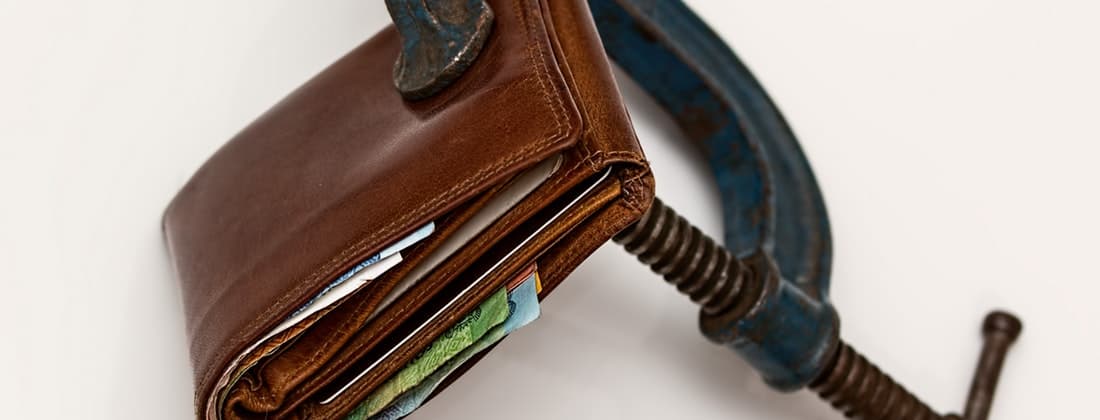
9 Tips to Protect Your Finances and Identity
With most of us using digital media and technology on the go, we are likely to check our finances while we are out and about. However, advances in technology come with some downsides and risks, with the common one being fraud. If you frequently access your finances online or on an app, or if you are involved in any activity that involves your finances - such as online shopping - then you are at risk.
However, don’t fret! Follow these steps and you can be sure to reduce the chances of becoming a victim of fraud and identity theft. Here are some top tips to protect your finances and identity.
1. Create strong passwords and change them regularly
A strong password should:
- Be easy for you to remember but hard for others (including close family and friends) to guess
- Contain a variety of characters: letters, numbers, and signs
By adding a strong password to your account - and changing your password regularly - you can be sure to keep your account protected.
Also, use anti-virus software to prevent malware, hackers and trojan horses from viewing your passwords and private data on your devices.
2. Keep your devices locked
Add a pin to each device you own to keep it locked, in case it gets stolen. If thieves take your device they can access your personal details, unless you keep it protected with a pin. Alternatively, you could add a finger/face recognition software or a pattern to your device.
3. Be careful of scams
Phishing is a common scam where identity thieves and fraudsters try to sneakily extort personal details from you in order to commit fraud. Quite often, they’ll send an email along the lines of ‘You are entitled to claim money from this company.’ Avoid these like the plague. These scams are so easy to fall for but don’t click on suspicious links and don’t download documents and attachments from these people.
Also, treat unsolicited calls with caution. If someone is calling you claiming to be from your bank and urging you to move your money to another account to protect yourself from fraud, hang up the call because this is a common scam.
4. Shred your documents...
...instead of disposing of them. Fraudsters have been known to snoop through bins to collect and gather personal information. Gross but true. Be sure to properly shred and dispose of anything with financial information on them including statements, checks, bills and more.
5. Monitor your bank statements
It’s important to check your bank statements to examine how much you’re spending. However, it’s also important so that you can monitor your transactions. If anything looks suspicious - i.e. an unauthorized payment - then contact your bank.
6. Watch what you share
This one is a no-brainer but some people give away information that could make them susceptible to fraud. Never ever give out personal details, such as PIN numbers and passwords, or any type of identifying information to anyone, even to close family and friends.
Also, use a protected network when using the network to keep your details private.
7. Look for the padlock symbol in your browser
When you’re using a website that may involve a financial activity or transaction - i.e. online shopping - look out for the green padlock symbol in your web browser. This indicates that your data is safe and will be encrypted.
8. Withdraw money from a cash machine inside the bank.
Banks outside are more likely to be targeted by scammers, so if you ever need to withdraw money, try to use the cash machine inside the bank because these are checked regularly and are less likely to be tampered with.
9. Keep your details up to date
Always let your bank - and other financial institutions - know whenever you’re details - i.e. home address and phone number - have changed. Hackers and scammers can sometimes secretly change these details so that correspondence goes to them and not you.
